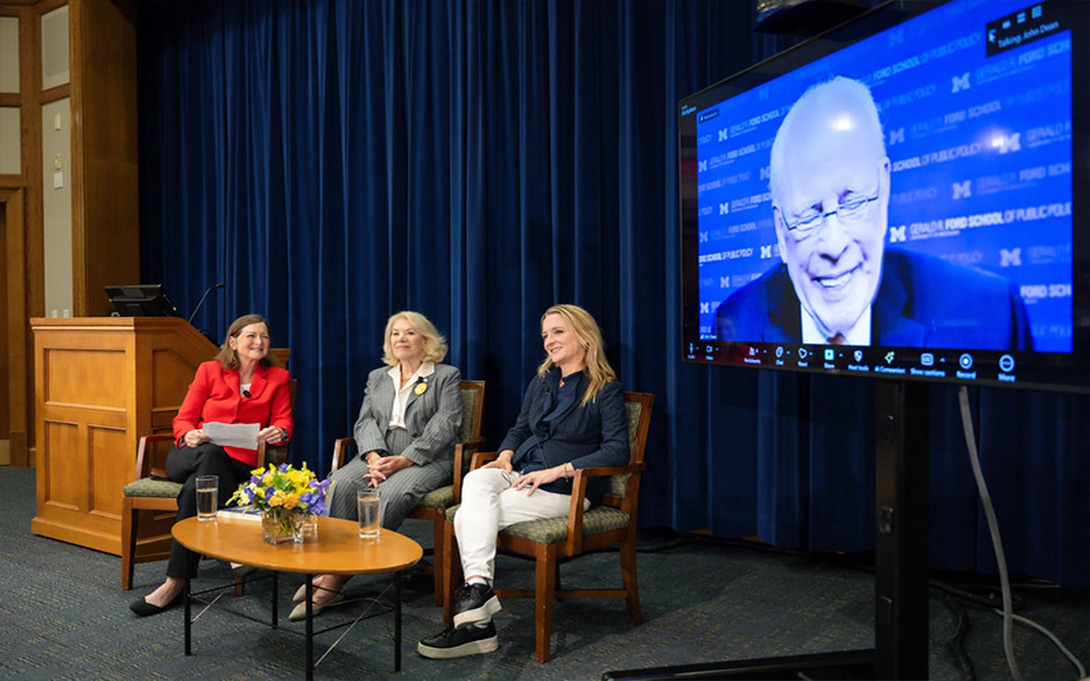
50 years ago, in a nation wracked by scandal and uncertainty, President Gerald R. Ford made the controversial decision to pardon former President Richard Nixon. How do we think about the implications of that historic pardon in a modern political context, when debates about presidential immunity, power, and prosecution have once again risen to the forefront of our national dialogue?
To address these essential questions, the Ford School of Public Policy convened “An assessment of the Nixon pardon” with academic experts - law professors Barbara McQuade of the University of Michigan and Kimberly Wehle of the University of Baltimore - and two of the most prominent players in the Watergate drama itself - former Watergate prosecutor Jill Wine-Banks and Nixon White House Counsel John Dean. The event took place September 13, 2024, almost exactly 50 years after the pardon was granted.
In the immediate aftermath of the pardon, Wine-Banks recalled feeling anger that Nixon would not face full legal accountability to the American public for violating his oath of office, while Dean, who would have otherwise faced months of intense litigation, felt immense relief. Nonetheless, both agreed that Ford’s decision came from a place of genuine moral conviction and desire to move the nation forward.
“Ford acted for very practical reasons because it was truly affecting his ability to govern, and it was going to consume his presidency, not unlike Richard Nixon’s,” said Dean. Wine-Banks also noted that, before extending the pardon, Ford made sure Nixon understood the implications of the Supreme Court’s decision in Budrick v. United States, which held that a pardon carries with it “an imputation of guilt and acceptance of a confession.”
Wehle contextualized Ford’s decision within the unique history of the pardon power itself, which has always carried both the possibility of extending justice and the danger of enabling corruption. Although what Wehle called a “mythology around the pardon” as an unchecked executive power has persisted throughout the history of American presidency, she expressed deep concern about its interaction with the Supreme Court’s recent ruling, which grants presidents broad immunity from criminal prosecution for any “official acts.”
Indeed, the panelists maintained that the presidential immunity ruling would have significantly impacted how the Watergate story played out. For instance, if the ruling had been in place in 1974, Dean argued that Nixon wouldn’t have needed to accept a pardon or admit guilt because “virtually all of his Watergate conduct would be immune activity.” Together, this new immunity doctrine, the absolute pardon power, and the politicization of the impeachment process have undermined the viability of several checks on the executive office. In closing, McQuade cautioned, “You really do have to be careful with your vote, with who you put in the White House, because all the guardrails are gone.”
This story was written by Rebecca Coyne.